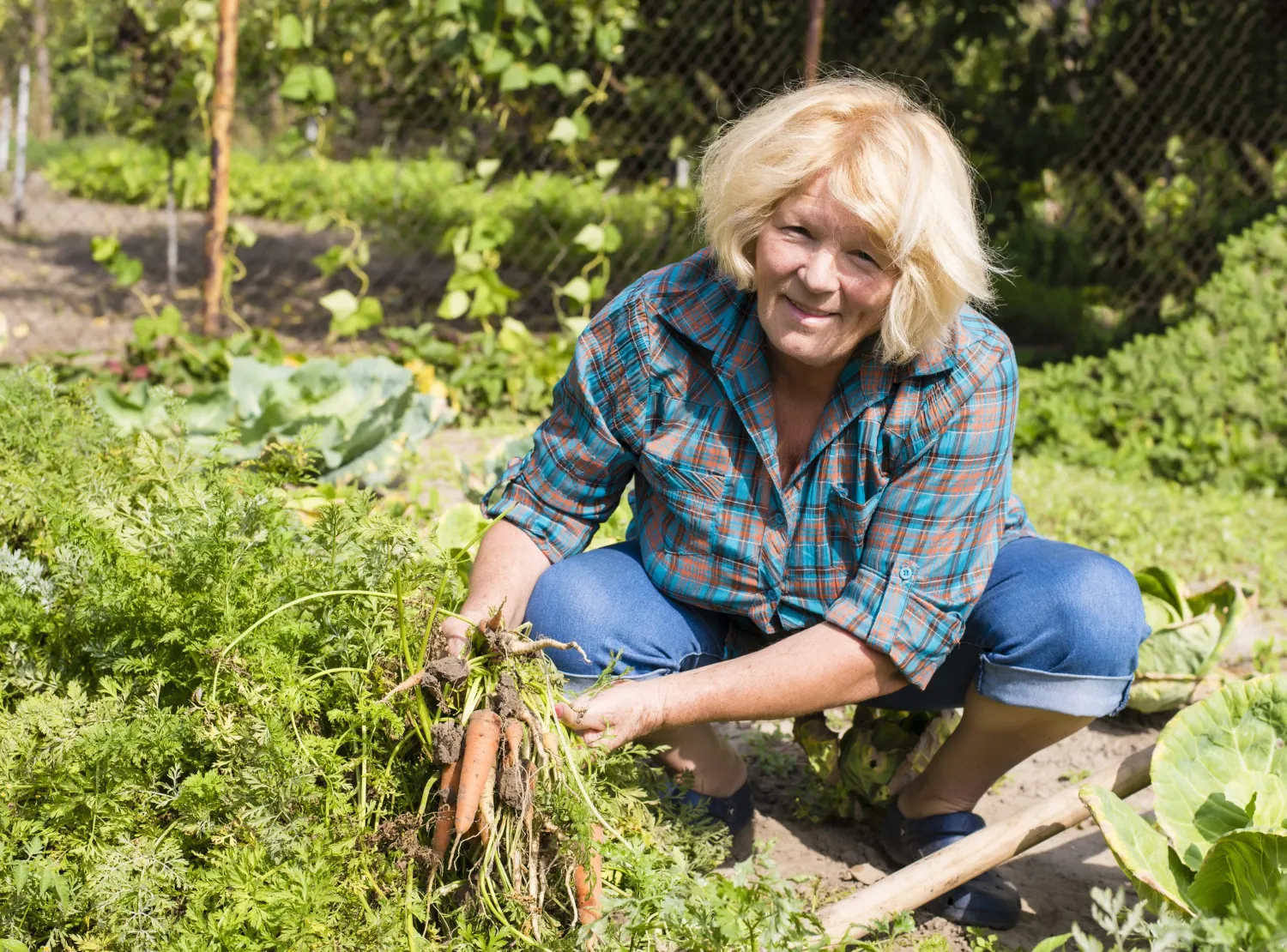Exploring Shared Living Arrangements For Future Retirement
Pros and Cons

[Toc]
As the sun sets, a new horizon emerges — one that beckons us toward a retirement of comfort, companionship, and purpose. But what does this chapter hold? Is it a solitary journey, or an adventure shared with others? In a world where retirement options abound, have you ever considered the merits of shared living arrangements?
Have you envisioned buying a home with friends, crafting a haven where laughter mingles with the echoes of shared memories? Or perhaps, the concept of a retirement commune, a vibrant tapestry of interdependence and camaraderie, has piqued your interest? As we stand at the crossroads of aging gracefully, the notion of communal living takes on new significance.
In an era where conventional retirement models are evolving, exploring these shared living arrangements isn't just an intriguing option — it's becoming an increasingly relevant one. The landscapes of retirement planning are shifting, and the notion of 'sensibly selfish' living is gaining traction. It's a departure from the traditional and daring embrace of a future that champions connection and financial prudence in equal measure.
Buying a House Together
Pros:
Shared Financial Responsibility
Pooling resources with like-minded individuals can open up new possibilities for retirement living. This shared financial responsibility not only allows for more comfortable and well-appointed living arrangements but also provides a safety net for unexpected expenses. In case of repairs, renovations, or medical emergencies, having multiple contributors eases the burden on any one individual.
Jane, a retiree who chose to buy a house with her friends, attests to the benefits: "Pooling our resources made it possible to afford a dream retirement home. We were able to choose a spacious property in a desirable location that none of us could have managed individually."
Companionship and Emotional Support
Retirement can sometimes lead to feelings of isolation, particularly for those who have lost a spouse or partner. The camaraderie and shared experiences can be a powerful source of emotional well-being. It provides a built-in support system that can combat feelings of loneliness or solitude that some retirees may face.
Janice, who has been sharing a home with friends in her retirement, emphasizes the emotional benefits: "Living with friends has made my retirement years much more enjoyable and fulfilling. We provide each other with companionship and support, and there's always someone to talk to or share activities with."
Division of Chores and Responsibilities
In a shared living arrangement, each individual brings their unique strengths and abilities to the table. This can lead to a more efficient division of labor and responsibilities. This division of chores not only lightens the load on each individual but also fosters a sense of interdependence and mutual reliance.
Mary, who lives with two other retirees, says, "We each have our own strengths, and it helps keep the house running smoothly. From cooking to gardening, we complement each other's abilities, making daily life easier and more enjoyable."
Future-Proofing for Health Challenges
As we age, the possibility of facing health challenges becomes a reality. By purchasing a house together, individuals can collectively plan for future healthcare needs. This may involve making modifications to the property for accessibility or even setting aside funds for potential medical expenses.
Alice emphasizes the importance of this foresight: "Knowing that we have each other's backs in case of health setbacks provides a tremendous sense of security."

Cons:
Potential Conflict Over Financial Matters
While shared financial responsibility can be a strength, it can also be a potential source of tension. Decisions about expenses, investments, and property management may require careful negotiation and clear communication.
Rachel, who has navigated these challenges, advises, "It's crucial to have open and honest discussions about money matters from the start. Establishing a clear financial plan and contingency measures can help prevent conflicts down the line."
Privacy and Personal Space
Maintaining a balance between togetherness and personal space can be a delicate dance in a shared living arrangement. It's important for individuals to have their own sanctuaries within the communal space.
Sarah, who has lived in a shared retirement home for several years, advises, "Designating private spaces and setting boundaries is essential. It ensures that everyone has the opportunity for solitude and personal time when needed."
Legal and Ownership Issues
Setting up a clear legal framework is essential to avoid complications down the line. Ownership percentages, property management decisions, and exit strategies should all be defined and agreed upon from the outset. Consulting a legal expert specializing in retirement planning can be invaluable in ensuring that everyone's interests are protected. You may also want to consider in any inheritance issues that may arise for your next of kin.
Health Needs
When living with others, especially as you age, it's essential to consider how potential health issues will be managed. Discussions about long-term care, medical decision-making, and access to healthcare services should be addressed proactively.
Rita cautions, "Planning for future illnesses is a critical aspect of shared living arrangements. It's important to have open conversations and establish clear protocols even for the unexpected, in order to support each other in times of need."

Living in a Commune
Pros:
Strong Sense of Community
Living in a commune fosters a unique sense of belonging and interconnectedness.
This communal spirit often leads to lasting friendships and a support network that can be especially valuable as individuals age and may require more assistance.
Susan, a resident of a retirement commune, shares, "Being part of a commune has enriched my social life beyond measure. We share meals, hobbies, and even responsibilities, creating a tight-knit community where everyone looks out for one another."
Shared Responsibilities and Skills
Communal living often means that each member brings their own set of skills and strengths to the table. This not only makes daily life more efficient but also fosters a sense of mutual respect and appreciation for each individual's contributions.
Jill, a long-time commune resident, highlights this aspect: "We all contribute in our unique ways, and it creates a sense of belonging. From gardening to household chores, each person's abilities contribute to the overall well-being of the community."
Cost Savings and Resource Sharing
Pooling resources in a commune setting can lead to significant cost savings. This financial efficiency can free up resources for travel, hobbies, or other activities that enrich the retirement experience.
Lisa, who has lived in a retirement commune for over a decade, remarks, "Pooling our resources allows us to live comfortably on a modest budget. We collectively purchase groceries, share transportation costs, and even invest in communal spaces, like a shared garden or workshop."
A Network for Health Challenges
In a retirement commune, a built-in support network can be invaluable when facing future health challenges. Sharon highlights this benefit: "Knowing that I have a community of friends around me, ready to offer assistance and support if needed, provides immense peace of mind as I consider the uncertainties of aging."

Cons:
Potential Conflicts Over Decision-Making
In a communal living situation, decisions are often made collectively. While this can lead to a more democratic and inclusive environment, it can also be a source of conflict.
Pauline, who has experienced this firsthand, advises, "Finding consensus can be challenging, but it's a crucial part of communal living. Open communication and a willingness to compromise are essential for a harmonious community."
Limited Personal Space and Autonomy
Communal living requires a willingness to share not only responsibilities but also personal space. For some individuals, this level of togetherness may feel constraining. It's important to carefully consider whether this lifestyle aligns with one's preferences and needs.
Pippa states "You have to be comfortable with a more communal way of life. It's about finding a balance between collective living and maintaining a sense of individuality."
Changes in Dynamics Over Time
As people age, their needs, preferences, and abilities may evolve. This can potentially lead to shifts in the dynamics within the commune.
Dr. Sarah Mitchell, a gerontologist, notes, "It's important to have a plan for how the commune will adapt to the changing needs of its members. This may involve making adjustments to the physical space, establishing support networks, or even considering additional care options."
Care in a Communal Setting
In a commune, it's crucial to have a plan in place for coordinating care in case of future illnesses. This may involve discussions about responsibilities, access to healthcare resources, and potential modifications to communal spaces for accessibility.
Mandy says “I had watched my mother die in a hospital bed and my father in a care home, I had made the decision ‘neither option’ if possible for me. I wanted to find another solution, carefully curated to suit my needs. Communal living may just be the solution.”

Time For Due Diligence
As we contemplate the tapestry of our retirement years, the choice of where and how to spend them looms large. Shared living arrangements, whether through purchasing a home together or embracing the communal spirit of a retirement commune, offer compelling possibilities. They weave threads of companionship, mutual support, and financial prudence into the fabric of our golden years
However, like any venture, these paths are not without their considerations it is time for your own due diligence. Potential financial intricacies, the delicate dance of personal space, and the necessity for open communication all factor into the equation. Yet, for many, the rewards far outweigh the challenges.
In this era of evolving retirement planning, where 'sensibly selfish' living takes center stage, exploring these alternative models is not just a choice—it's a statement. It's an assertion that retirement can be a time of shared dreams and collective fulfillment.
So, if you find yourself at the cusp of retirement, pondering the shape of things to come, take a moment. Consider the roads less traveled. And as you embark on this journey, may it be one that brings you joy, connection, and a sense of purpose.
Are you eager to explore more facets of modern retirement planning? Take a moment to delve into our other thought-provoking posts on the Sensibly Selfish website. Discover a wealth of insights and ideas that empower you to shape your retirement years with intention and wisdom. Set aside some time to read more…
Tiny Homes
Your journey awaits, and we're here to guide you every step of the way.









